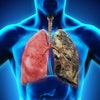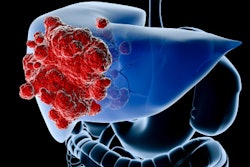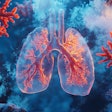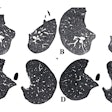
CT shows that terminal lung cancer patients with sarcopenia -- a manifestation of loss of muscle mass and strength due to cancer progression -- develop depression, a team of Chinese researchers has found.
"Patients with sarcopenia have more than four times the risk of suffering from depression than patients without sarcopenia," wrote a group led by Dr. Dinglong Xue of Harbin Medical University Cancer Hospital in Harbin, China. The study results were published October 6 in Support Care Cancer.
Patients with terminal cancer often develop cachexia, a progressive decrease in muscle mass and strength, and sarcopenia is a manifestation of this condition. Xue's group sought to explore any connections between sarcopenia and depression in this patient population.
To do so, the investigators conducted a study that included 104 patients hospitalized with advanced lung cancer who completed the Hamilton Depression Scale and underwent CT imaging of the psoas muscle for evaluation of sarcopenia.
Of the study participants, 31.7% had depression and 61.5% had sarcopenia. There were no statistical differences between depressed and nondepressed individuals regarding age, smoking, and gender.
Identifying sarcopenia in terminally ill lung cancer patients could help caregivers offer better end-of-life care, according to Xue and colleagues.
"The correlation between sarcopenia and depression underscores the need for early intervention by our clinicians," they concluded.




















